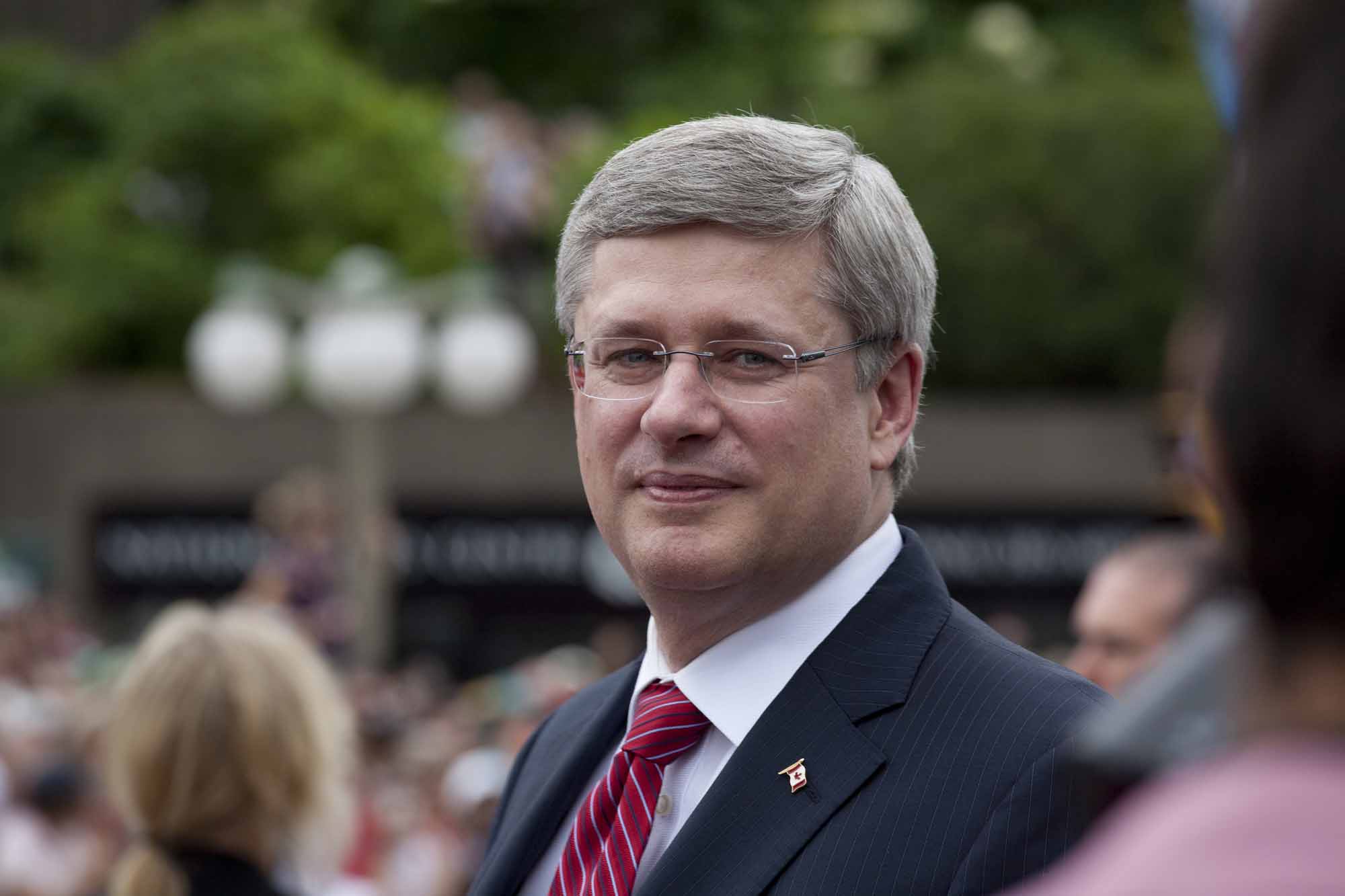
Stephen Harper, the former Prime Minister of Canada, is a fascinating figure who has left an indelible mark on Canadian politics. Known for his conservative policies and stoic demeanor, Harper’s tenure as Prime Minister from 2006 to 2015 was marked by significant changes in the country’s economic, social, and foreign policies.
In this article, we will delve deeper into the life and career of Stephen Harper, highlighting some surprising facts that might not be widely known. From his early years in politics to his rise to the top leadership position in Canada, Harper’s journey is filled with interesting tidbits that shed light on his personality and political ideology.
So, buckle up and get ready to explore 22 surprising facts about Stephen Harper that will give you a fresh perspective on one of Canada’s prominent political figures.
Key Takeaways:
- Stephen Harper, the 22nd Prime Minister of Canada, is a trained economist, avid hockey fan, and cat lover. He implemented tough-on-crime policies and prioritized Arctic sovereignty during his time in office.
- Harper left politics after losing the 2015 election to pursue other interests, such as public speaking engagements and his personal life. He is known for his reserved personality, passion for music, and strong support for Israel.
Harper became the 22nd Prime Minister of Canada.
Stephen Harper served as the Prime Minister of Canada from 2006 to 2015, making him the 22nd individual to hold this prestigious position.
He was born and raised in Toronto.
Harper was born on April 30, 1959, in Toronto, Ontario. He spent his formative years in the bustling city before embarking on his political career.
Harper is a trained economist.
Before entering politics, Harper earned a Bachelor’s degree in economics from the University of Calgary and went on to complete a Master’s degree in economics at the same institution.
He co-founded the right-wing Canadian Alliance party.
In 2000, Harper played a pivotal role in the creation of the Canadian Alliance party, a conservative political party that later merged with the Progressive Conservative party to form the modern-day Conservative Party of Canada.
Harper is known for his fiscal conservatism.
During his time as Prime Minister, Harper implemented various economic policies that focused on reducing government spending and promoting fiscal responsibility.
He is the longest-serving leader of the Conservative Party of Canada.
Under Harper’s leadership, the Conservative Party of Canada saw significant success, and he became the longest-serving leader in the party’s history.
Harper is an avid hockey fan.
As a proud Canadian, Harper is passionate about hockey and has been a long-time supporter of the sport. He has often been spotted at hockey games, cheering on his favorite teams.
He is a published author.
Harper has authored several books, including “Right Here, Right Now: Politics and Leadership in the Age of Disruption” and “A Great Game: The Forgotten Leafs and the Rise of Professional Hockey.
Harper is fluent in both English and French.
As a bilingual politician, Harper is able to effectively communicate with Canadians from both English-speaking and French-speaking provinces.
He implemented tough-on-crime policies.
During his time in office, Harper introduced various crime legislation aimed at increasing penalties for certain offenses and cracking down on criminal activities.
Harper is a strong advocate for Arctic sovereignty.
Recognizing the strategic and economic importance of the Arctic region, Harper prioritized strengthening Canada’s presence in the North and asserting its sovereignty over Arctic territories.
He initiated the apology for residential schools.
Under Harper’s leadership, the Canadian government issued a formal apology in 2008 for the country’s historical treatment of Indigenous peoples through the residential school system.
Harper is known for his reserved and introverted personality.
Unlike some politicians known for their charisma and extroverted nature, Harper has a reputation for being more reserved and introverted in his demeanor.
He is an advocate for free trade.
Harper strongly believes in the benefits of free trade and actively pursued trade agreements with various countries during his tenure as Prime Minister.
Harper has a passion for music.
Outside of politics, Harper enjoys playing the piano and has been known to perform at public events and fundraisers.
He is a cat lover.
Harper and his wife, Laureen, are cat owners and have been photographed with their feline companions on multiple occasions.
Harper has a fascination with history.
Throughout his life, Harper has expressed a keen interest in history, particularly Canadian history, and has written extensively on the subject.
He introduced the Federal Accountability Act.
As part of his commitment to transparency and integrity in government, Harper implemented the Federal Accountability Act, which aimed to increase accountability and reduce corruption in federal institutions.
Harper is a strong supporter of Israel.
During his time as Prime Minister, Harper maintained a close relationship with Israel and took a staunch pro-Israel stance in international affairs.
He played a prominent role in the G20 summits.
Harper actively participated in multiple G20 summits, where world leaders gather to discuss global economic issues and coordinate policies.
Harper established the Canada First Defence Strategy.
Recognizing the importance of a strong military, Harper unveiled the Canada First Defence Strategy in 2008, outlining the government’s plan to modernize and strengthen Canada’s armed forces.
He left politics to pursue other interests.
After losing the 2015 federal election, Harper stepped down as the leader of the Conservative Party and retired from politics to focus on public speaking engagements and his personal life.
Conclusion
In conclusion, Stephen Harper is a fascinating figure in Canadian politics. From his tenure as the 22nd Prime Minister of Canada to his conservative ideologies, Harper has left a lasting impact on the country. Throughout his career, he faced numerous challenges and controversies, but also achieved several notable accomplishments.
Harper’s leadership style, economic policies, and diplomatic efforts have shaped Canada’s political landscape. His dedication to fiscal responsibility and national security resonated with many Canadians, while others criticized his approach as too conservative and divisive. Nonetheless, Harper’s contributions cannot be overlooked, and his legacy continues to be a subject of debate.
Overall, Stephen Harper is an important figure in Canadian history, and his influence will be felt for years to come. Whether you agree or disagree with his policies, there is no denying his impact on the nation’s political and economic landscape.
FAQs
Q: How long was Stephen Harper Prime Minister of Canada?
A: Stephen Harper served as the 22nd Prime Minister of Canada for almost a decade, from February 6, 2006, to November 4, 2015.
Q: What are some of Stephen Harper’s notable achievements?
A: Some of Stephen Harper’s notable achievements include implementing tax cuts, balancing the federal budget, establishing the Universal Child Care Benefit, strengthening Canada’s economy during the global financial crisis, and signing free trade agreements with various countries.
Q: Was Stephen Harper a member of a political party?
A: Yes, Stephen Harper was a member of the Conservative Party of Canada. He was actively involved in conservative politics before becoming the party’s leader and eventually the Prime Minister of Canada.
Q: Did Stephen Harper face any controversies during his time as Prime Minister?
A: Yes, Stephen Harper faced several controversies during his time as Prime Minister, including the handling of the Senate expense scandal, the prorogation of Parliament, the deregulation of environmental protections, and the passage of controversial bills, such as the Anti-Terrorism Act.
Q: What is Stephen Harper doing now?
A: After leaving politics, Stephen Harper has been involved in various activities, including consulting, writing books, and being active in global affairs. He has also served on several corporate boards and established the Harper & Associates consultancy firm.
Stephen Harper's tenure as Prime Minister of Canada was marked by significant events and personal quirks. If you're curious about other influential figures, consider reading about Pierre Poilievre's rise in Canadian politics, Leonid Kantorovich's groundbreaking contributions to economic policy, or the fascinating world of environmental impact assessments and their role in shaping environmental policy.
Was this page helpful?
Our commitment to delivering trustworthy and engaging content is at the heart of what we do. Each fact on our site is contributed by real users like you, bringing a wealth of diverse insights and information. To ensure the highest standards of accuracy and reliability, our dedicated editors meticulously review each submission. This process guarantees that the facts we share are not only fascinating but also credible. Trust in our commitment to quality and authenticity as you explore and learn with us.


